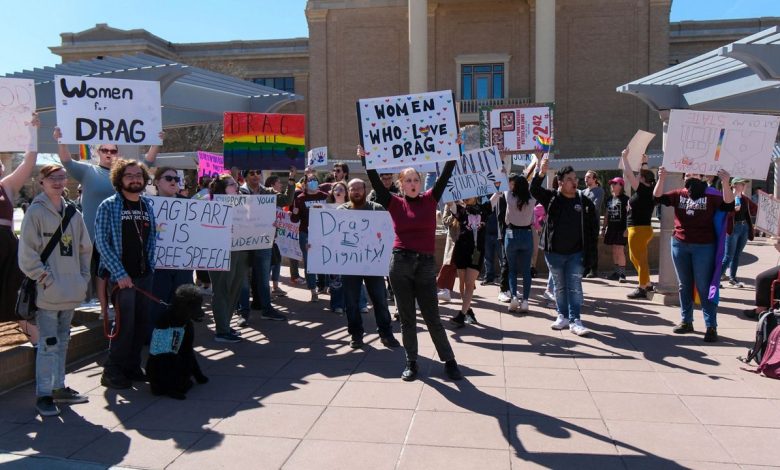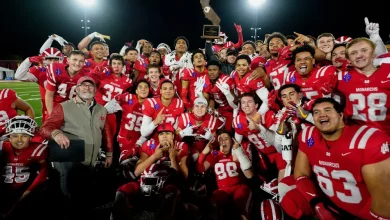A group of LGBTQ students filed a lawsuit to repeal Texas A&M’s unlawful drag ban.

In the face of growing national discourse surrounding LGBTQ+ rights and visibility, Texas A&M University has become the focal point of a significant legal battle that centers on the rights of students to express themselves freely and inclusively. In the spring of 2025, a group of LGBTQ+ students at Texas A&M filed a lawsuit challenging the university’s recently implemented drag performance ban, arguing that it is a violation of their constitutional rights to free speech, expression, and equal protection under the law. This legal battle is not just about one university’s policies but has broader implications for the LGBTQ+ community, freedom of expression, and the ongoing debate over the place of queer culture in public spaces.
Background of the Texas A&M Drag Ban
Texas A&M’s controversial drag ban emerged after the university, citing concerns about safety, appropriateness, and community standards, imposed restrictions on student-run drag performances. The university’s administration contended that these performances were disruptive to the campus environment and violated codes of conduct aimed at maintaining professionalism and respect for all students. However, the university’s critics argue that the ban was politically motivated, aimed at suppressing LGBTQ+ expression, and out of step with the increasingly inclusive values of higher education institutions across the nation.
The decision to ban drag performances came after several instances where students had organized drag shows on campus, many of which were held as part of LGBTQ+ student organizations’ efforts to create safe spaces and promote visibility for queer and transgender individuals. These events were celebrated by the LGBTQ+ student body, drawing crowds of allies and members of the broader community. However, the ban on drag performances, which was passed through the university’s student government and supported by some faculty, sparked outrage among students, activists, and alumni who viewed it as an attack on queer culture.
In the wake of the ban, several LGBTQ+ students, alumni, and activists voiced their discontent, accusing Texas A&M of censoring expressions of queer identity and marginalizing a vital form of self-expression. The students who filed the lawsuit argue that drag performances are not only a form of art and entertainment but also a vital cultural practice for LGBTQ+ individuals—one that helps foster solidarity, acceptance, and empowerment. Their lawsuit aims to reverse the ban, asserting that it infringes on their First Amendment rights to free speech and expression, as well as their Fourteenth Amendment rights to equal protection under the law.
The Legal Argument: Violation of Constitutional Rights
At the heart of the lawsuit is a claim that Texas A&M’s drag performance ban violates both the First Amendment and the Fourteenth Amendment of the U.S. Constitution. The First Amendment guarantees the right to freedom of speech and expression, while the Fourteenth Amendment ensures that all individuals are afforded equal protection under the law.
First Amendment Violation: Freedom of Speech and Expression
The plaintiffs in the lawsuit assert that the drag ban imposes an unconstitutional restriction on their freedom of expression. Drag performances, they argue, are a legitimate and important form of speech, through which LGBTQ+ students express their identities, creativity, and experiences. To ban drag performances on campus, the plaintiffs contend, is a clear violation of their right to free expression.
Legal precedent on this issue tends to support the idea that artistic expression, especially when it reflects personal identity and culture, is protected under the First Amendment. Previous Supreme Court rulings have affirmed that artistic performances—whether in the form of theater, music, or visual art—are integral components of speech. In the case of drag performances, which combine elements of performance art, satire, and identity expression, the plaintiffs argue that the university cannot arbitrarily suppress them without violating constitutional rights.
Additionally, the lawsuit contends that Texas A&M’s ban is overly broad and vague, as it does not specify which kinds of performances are prohibited or why they are deemed harmful or disruptive. The plaintiffs argue that this lack of clarity makes it difficult for students to understand the scope of the ban, potentially chilling other forms of artistic or political expression.
Fourteenth Amendment Violation: Equal Protection Under the Law
Another key element of the lawsuit is the argument that the drag performance ban violates the Equal Protection Clause of the Fourteenth Amendment. This clause guarantees that no state (or institution receiving state funding) shall deny any person within its jurisdiction equal protection under the law. The plaintiffs argue that the ban discriminates against LGBTQ+ students by singling out drag performances, a uniquely queer form of expression, while allowing other kinds of performances—such as traditional theater, music concerts, and dance performances—to continue without restriction.
The lawsuit draws attention to the fact that Texas A&M’s ban specifically targets LGBTQ+ culture, which has historically been marginalized and persecuted. By imposing restrictions on drag performances while permitting other forms of artistic expression, the plaintiffs claim that the university is engaging in discriminatory behavior that disproportionately affects LGBTQ+ students and undermines their right to equality and dignity.
Furthermore, the plaintiffs argue that the ban sends a message that queer expression is less valuable or less worthy of protection than other forms of speech, which could create a hostile or unwelcoming environment for LGBTQ+ students. This, they argue, not only violates their constitutional rights but also exacerbates the discrimination that queer students often face on campus.
The Broader Impact of the Lawsuit
While the lawsuit is focused on the drag performance ban at Texas A&M, its implications extend far beyond the university’s campus. As a public institution, Texas A&M is subject to federal and state laws, including the U.S. Constitution. The case represents a larger struggle over the rights of LGBTQ+ individuals in public spaces, especially in environments like colleges and universities, where free expression is supposed to be a cornerstone of education.
Setting a Precedent for LGBTQ+ Rights in Education
This case could set an important legal precedent for LGBTQ+ students and other marginalized groups in higher education. If the court rules in favor of the plaintiffs, it could send a message to universities nationwide that policies restricting LGBTQ+ expression—whether through drag bans, anti-transgender policies, or other forms of censorship—are unconstitutional and cannot be justified by claims of safety or community standards.
Such a ruling would also reaffirm the importance of protecting LGBTQ+ rights in the face of a broader political climate that has seen growing attempts to roll back the rights of LGBTQ+ individuals. In recent years, several states and localities have passed or proposed laws that restrict transgender rights, limit access to gender-affirming healthcare, and ban discussions of LGBTQ+ issues in schools. The Texas A&M lawsuit, therefore, could be a pivotal moment in the fight to protect LGBTQ+ students’ right to express themselves freely in educational spaces.
Impact on University Policies and Culture
Regardless of the legal outcome, this lawsuit has already sparked significant debate about the role of universities in fostering inclusive environments for all students. For Texas A&M, the case has raised questions about its responsibility to protect and respect the identities of LGBTQ+ students. As a public university, Texas A&M is bound by federal and state laws regarding discrimination, and this lawsuit puts the university’s commitment to diversity and inclusion under the microscope.
Universities across the country will be watching this case closely, as it could inspire similar legal challenges at other institutions with restrictive policies toward LGBTQ+ expression. If Texas A&M’s drag ban is overturned, it may prompt other universities to reconsider similar policies, particularly in the context of the increasing visibility of LGBTQ+ students and the growing recognition of queer culture as an essential part of campus life.
At the same time, the lawsuit has also sparked backlash from conservative groups who view drag performances and LGBTQ+ expression as inappropriate or harmful. These groups argue that the university should have the right to set standards for what is acceptable on campus and that drag performances, in particular, have no place in the educational environment. The legal battle will, therefore, reflect a broader cultural clash over the role of LGBTQ+ individuals in public life and whether or not their expressions of identity should be protected.
Public Support and Opposition
Since the lawsuit was filed, there has been significant public reaction from both supporters and detractors of the drag ban. Supporters of the plaintiffs, including LGBTQ+ advocacy organizations like the Human Rights Campaign and Lambda Legal, have rallied behind the lawsuit, emphasizing the importance of ensuring that all students have the freedom to express themselves without fear of discrimination or punishment. These organizations argue that the drag performance ban violates the core principles of inclusion and equity that should guide public universities.
On the other hand, opponents of the lawsuit argue that Texas A&M has the right to regulate student activities in ways that align with its values and mission. Some have framed the ban as part of a broader movement to protect “traditional values” on college campuses, claiming that the university is within its rights to restrict performances that they perceive as “too political” or “inappropriate” for a public educational setting.
The Fight for LGBTQ+ Expression
The lawsuit filed by a group of LGBTQ+ students at Texas A&M is more than just a legal challenge to a specific policy; it is a fight for the fundamental rights of LGBTQ+ individuals to express themselves freely and live authentically. At stake is not only the right to perform drag on a college campus but also the broader issue of whether LGBTQ+ students are entitled to the same protections and rights as their heterosexual and cisgender peers.
As this case moves through the courts, it will undoubtedly have a lasting impact on the legal landscape for LGBTQ+ rights in higher education. The outcome could serve as a catalyst for change, setting a legal precedent that strengthens the rights of LGBTQ+ students to express themselves without fear of discrimination or censorship. While the case is still in its early stages, the fight for the repeal of Texas A&M’s drag performance ban is one that will resonate far beyond the university’s campus, influencing the ongoing struggle for equality, justice, and visibility for LGBTQ+ people nationwide.









